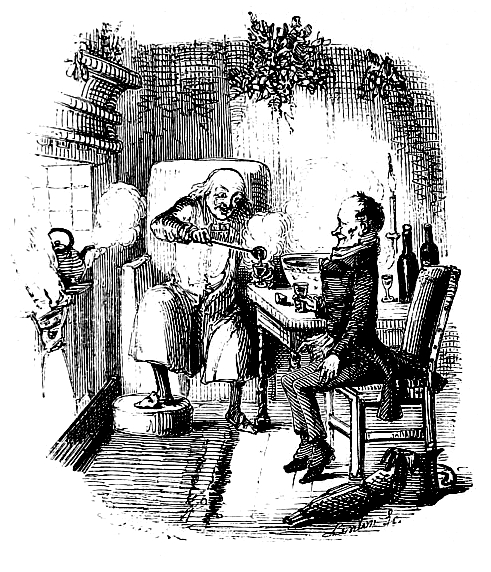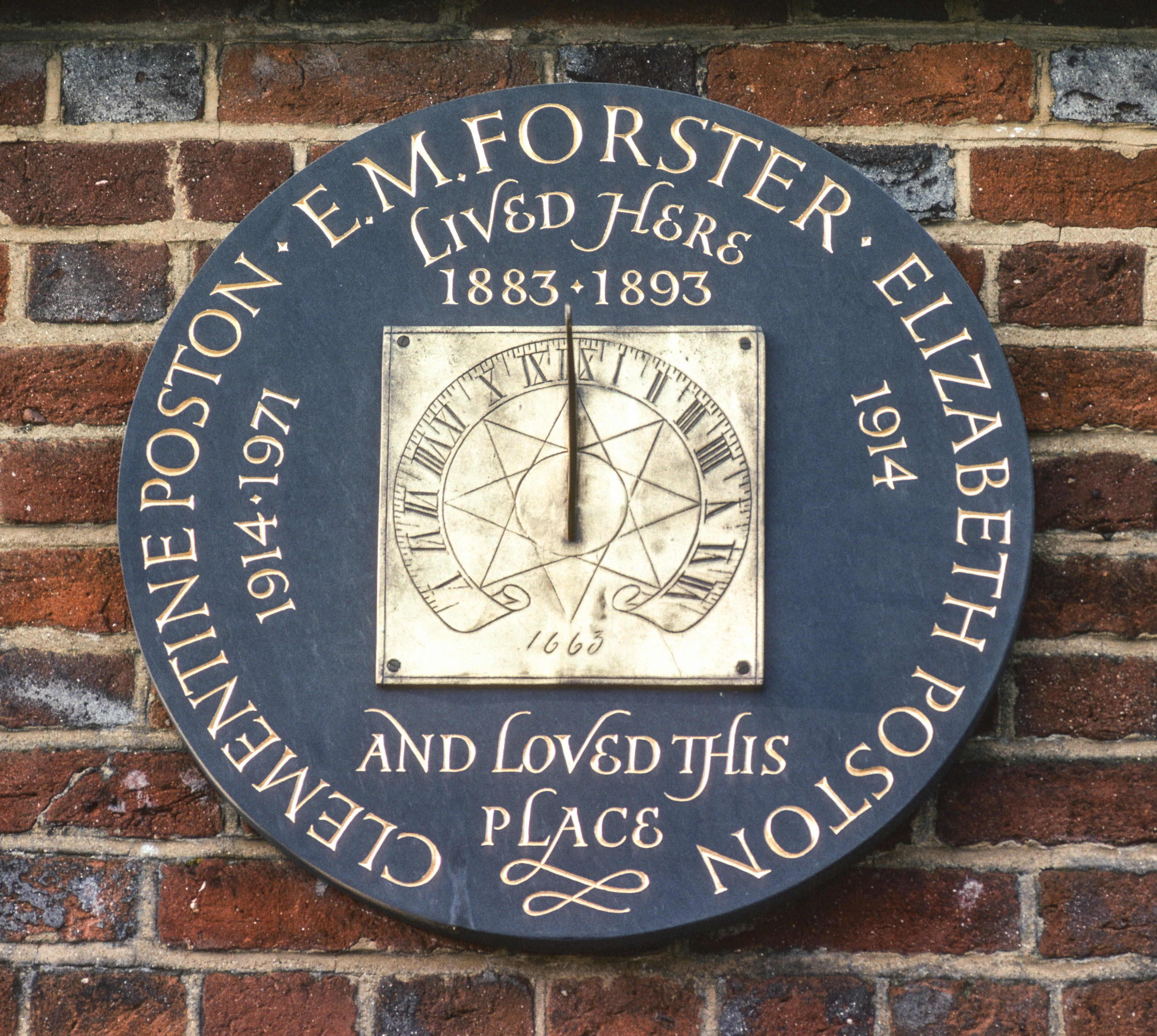|
God Rest You Merry, Gentlemen
"God Rest You Merry, Gentlemen" is an English traditional Christmas carol. It is in the Roxburghe Collection (iii. 452), and is listed as no. 394 in the Roud Folk Song Index. It is also known as "Tidings of Comfort and Joy", and by other variant incipits. History An early version of this carol is found in an anonymous manuscript, dating from the 1650s.. At page 291, Brown notes that "the main part of the collection, that is, what is transcribed between pages 1 and 119, was put together in a few years in the early 1650s". It contains a slightly different version of the first line from that found in later texts, with the first line "Sit yow merry gentlemen" (also transcribed "Sit you merry gentlemen" and "Sit you merry gentlemen"). The earliest known printed edition of the carol is in a broadsheet dated to c. 1760. A precisely datable reference to the carol is found in the November 1764 edition of the '' Monthly Review''. Some sources claim that the carol dates as far back as ... [...More Info...] [...Related Items...] OR: [Wikipedia] [Google] [Baidu] |
Christmas Carol
A Christmas carol is a carol (a song or hymn) on the theme of Christmas, traditionally sung at Christmas itself or during the surrounding Christmas holiday season. The term noel has sometimes been used, especially for carols of French origin. Christmas carols may be regarded as a subset of the broader category of Christmas music. History The first known Christmas hymns may be traced to 4th-century Rome. Latin hymns such as Veni redemptor gentium, written by Ambrose, Archbishop of Milan, were austere statements of the theological doctrine of the Incarnation in opposition to Arianism. Corde natus ex Parentis (''Of the Father's heart begotten'') by the Spanish poet Prudentius (d. 413) is still sung in some churches today. In the 9th and 10th centuries, the Christmas sequence (or prose) was introduced in Northern European monasteries, developing under Bernard of Clairvaux into a sequence of rhymed stanzas. In the 12th century the Parisian monk Adam of Saint Victor bega ... [...More Info...] [...Related Items...] OR: [Wikipedia] [Google] [Baidu] |
Chappell & Co
Chappell & Co. was an English company that published music and manufactured pianos. Founded by pianist Samuel Chappell, the company was one of the leading music publishers and piano manufacturers in Britain until 1980 when Chappell sold its retail activities to concentrate solely on music publishing. After some previous acquisitions by other companies, the ''Chappell'' brand name is currently owned by Warner Chappell Music (part of Warner Music Group, which acquired it for $200 million in 1987.Warner Reportedly Will Acquire Chappell : $200-Million Deal Would Merge 2 of 3 Biggest U.S. Music Publishers by KATHRYN HARRIS on ''Los Angeles Times'', 12 May 1987 History [...More Info...] [...Related Items...] OR: [Wikipedia] [Google] [Baidu] |
As You Like It
''As You Like It'' is a pastoral comedy by William Shakespeare believed to have been written in 1599 and first published in the First Folio in 1623. The play's first performance is uncertain, though a performance at Wilton House in 1603 has been suggested as a possibility. ''As You Like It'' follows its heroine Rosalind as she flees persecution in her uncle's court, accompanied by her cousin Celia to find safety and, eventually, love, in the Forest of Arden. In the forest, they encounter a variety of memorable characters, notably the melancholy traveller Jaques, who speaks many of Shakespeare's most famous speeches (such as " All the world's a stage", "too much of a good thing" and "A fool! A fool! I met a fool in the forest"). Jaques provides a sharp contrast to the other characters in the play, always observing and disputing the hardships of life in the country. Historically, critical response has varied, with some critics finding the play a work of great merit and so ... [...More Info...] [...Related Items...] OR: [Wikipedia] [Google] [Baidu] |
William Shakespeare
William Shakespeare ( 26 April 1564 – 23 April 1616) was an English playwright, poet and actor. He is widely regarded as the greatest writer in the English language and the world's pre-eminent dramatist. He is often called England's national poet and the "Bard of Avon" (or simply "the Bard"). His extant works, including collaborations, consist of some 39 plays, 154 sonnets, three long narrative poems, and a few other verses, some of uncertain authorship. His plays have been translated into every major living language and are performed more often than those of any other playwright. He remains arguably the most influential writer in the English language, and his works continue to be studied and reinterpreted. Shakespeare was born and raised in Stratford-upon-Avon, Warwickshire. At the age of 18, he married Anne Hathaway, with whom he had three children: Susanna, and twins Hamnet and Judith. Sometime between 1585 and 1592, he began a successful career in London as an a ... [...More Info...] [...Related Items...] OR: [Wikipedia] [Google] [Baidu] |
Oxford English Dictionary
The ''Oxford English Dictionary'' (''OED'') is the first and foundational historical dictionary of the English language, published by Oxford University Press (OUP). It traces the historical development of the English language, providing a comprehensive resource to scholars and academic researchers, as well as describing usage in its many variations throughout the world. Work began on the dictionary in 1857, but it was only in 1884 that it began to be published in unbound fascicles as work continued on the project, under the name of ''A New English Dictionary on Historical Principles; Founded Mainly on the Materials Collected by The Philological Society''. In 1895, the title ''The Oxford English Dictionary'' was first used unofficially on the covers of the series, and in 1928 the full dictionary was republished in 10 bound volumes. In 1933, the title ''The Oxford English Dictionary'' fully replaced the former name in all occurrences in its reprinting as 12 volumes with a one- ... [...More Info...] [...Related Items...] OR: [Wikipedia] [Google] [Baidu] |
Silas Marner
''Silas Marner: The Weaver of Raveloe'' is the third novel by George Eliot. It was published in 1861. An outwardly simple tale of a linen weaver, the novel is notable for its strong realism and its sophisticated treatment of a variety of issues ranging from religion to industrialisation to community. Plot summary The novel is set in the early years of the 19th century. Silas Marner, a weaver, is a member of a small Calvinist congregation in Lantern Yard, a slum street in Northern England. He is falsely accused of stealing the congregation's funds while watching over the very ill deacon. Two pieces of evidence implicate Silas: a pocket knife, and the discovery in his own house of the bag formerly containing the money. There is the strong suggestion that Silas' best friend, William Dane, has framed him, since Silas had lent his pocket knife to William shortly before the crime was committed. Lots are drawn in the belief – also shared by Silas – that God will direct the process ... [...More Info...] [...Related Items...] OR: [Wikipedia] [Google] [Baidu] |
George Eliot
Mary Ann Evans (22 November 1819 – 22 December 1880; alternatively Mary Anne or Marian), known by her pen name George Eliot, was an English novelist, poet, journalist, translator, and one of the leading writers of the Victorian era. She wrote seven novels: '' Adam Bede'' (1859), '' The Mill on the Floss'' (1860), '' Silas Marner'' (1861), ''Romola'' (1862–63), '' Felix Holt, the Radical'' (1866), '' Middlemarch'' (1871–72) and '' Daniel Deronda'' (1876). Like Charles Dickens and Thomas Hardy, she emerged from provincial England; most of her works are set there. Her works are known for their realism, psychological insight, sense of place and detailed depiction of the countryside. ''Middlemarch'' was described by the novelist Virginia Woolf as "one of the few English novels written for grown-up people"Woolf, Virginia. "George Eliot." ''The Common Reader''. New York: Harcourt, Brace, and World, 1925. pp. 166–76. and by Martin Amis and Julian Barnes as the greatest novel ... [...More Info...] [...Related Items...] OR: [Wikipedia] [Google] [Baidu] |
Ebenezer Scrooge
Ebenezer Scrooge () is the protagonist of Charles Dickens's 1843 novella '' A Christmas Carol''. At the beginning of the novella, Scrooge is a cold-hearted miser who despises Christmas. The tale of his redemption by three spirits (the Ghost of Christmas Past, the Ghost of Christmas Present, and the Ghost of Christmas Yet to Come) has become a defining tale of the Christmas holiday in the English-speaking world. Dickens describes Scrooge thus early in the story: "The cold within him froze his old features, nipped his pointed nose, shrivelled his cheek, stiffened his gait; made his eyes red, his thin lips blue; and spoke out shrewdly in his grating voice." Towards the end of the novella, the three spirits show Scrooge the errors of his ways, and he becomes a better, more generous man. Scrooge's last name has entered the English language as a byword for greed and misanthropy, while his catchphrase, " Bah! Humbug!" is often used to express disgust with many modern Christma ... [...More Info...] [...Related Items...] OR: [Wikipedia] [Google] [Baidu] |
A Christmas Carol
''A Christmas Carol. In Prose. Being a Ghost Story of Christmas'', commonly known as ''A Christmas Carol'', is a novella by Charles Dickens, first published in London by Chapman & Hall in 1843 and illustrated by John Leech. ''A Christmas Carol'' recounts the story of Ebenezer Scrooge, an elderly miser who is visited by the ghost of his former business partner Jacob Marley and the spirits of Christmas Past, Present and Yet to Come. After their visits, Scrooge is transformed into a kinder, gentler man. Dickens wrote ''A Christmas Carol'' during a period when the British were exploring and re-evaluating past Christmas traditions, including carols, and newer customs such as Christmas cards and Christmas trees. He was influenced by the experiences of his own youth and by the Christmas stories of other authors, including Washington Irving and Douglas Jerrold. Dickens had written three Christmas stories prior to the novella, and was inspired following a visit to the Field ... [...More Info...] [...Related Items...] OR: [Wikipedia] [Google] [Baidu] |
Charles Dickens
Charles John Huffam Dickens (; 7 February 1812 – 9 June 1870) was an English writer and social critic. He created some of the world's best-known fictional characters and is regarded by many as the greatest novelist of the Victorian era.. His works enjoyed unprecedented popularity during his lifetime and, by the 20th century, critics and scholars had recognised him as a literary genius. His novels and short stories are widely read today. Born in Portsmouth, Dickens left school at the age of 12 to work in a boot-blacking factory when his father was incarcerated in a debtors' prison. After three years he returned to school, before he began his literary career as a journalist. Dickens edited a weekly journal for 20 years, wrote 15 novels, five novellas, hundreds of short stories and non-fiction articles, lectured and performed readings extensively, was an indefatigable letter writer, and campaigned vigorously for children's rights, for education, and for other social ... [...More Info...] [...Related Items...] OR: [Wikipedia] [Google] [Baidu] |
The Gentleman's Magazine
''The Gentleman's Magazine'' was a monthly magazine founded in London, England, by Edward Cave in January 1731. It ran uninterrupted for almost 200 years, until 1922. It was the first to use the term '' magazine'' (from the French ''magazine'', meaning "storehouse") for a periodical. Samuel Johnson's first regular employment as a writer was with ''The Gentleman's Magazine''. History The original complete title was ''The Gentleman's Magazine: or, Trader's monthly intelligencer''. Cave's innovation was to create a monthly digest of news and commentary on any topic the educated public might be interested in, from commodity prices to Latin poetry. It carried original content from a stable of regular contributors, as well as extensive quotations and extracts from other periodicals and books. Cave, who edited ''The Gentleman's Magazine'' under the pen name "Sylvanus Urban", was the first to use the term '' magazine'' (meaning "storehouse") for a periodical. Contributions to the ... [...More Info...] [...Related Items...] OR: [Wikipedia] [Google] [Baidu] |
Elizabeth Poston
Elizabeth Poston (24 October 1905 – 18 March 1987) was an English composer, pianist and writer. Early life and career Poston was born in Highfield House in Pin Green, which is now the site of Hampson Park in Stevenage. In 1914, she moved with her mother, Clementine Poston, to nearby Rooks Nest House, where E. M. Forster had lived as a child. Poston and Forster subsequently became good friends. After attending Queen Margaret's School, York and studying with pianist Harold Samuel, she attended the Royal Academy of Music (RAM) in London, where both Peter Warlock and Ralph Vaughan Williams encouraged her talents and where she studied composition with Julius Harrison. She won a prize from the RAM for her one movement Violin Sonata, which was subsequently broadcast by the BBC on 9 July 1928, with Antonio Brosa as soloist and Victor Hely-Hutchinson piano. When she graduated from the RAM in 1925, seven of her songs were published, and in 1928 she published five more. Poston we ... [...More Info...] [...Related Items...] OR: [Wikipedia] [Google] [Baidu] |
.png)









